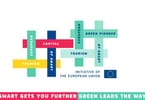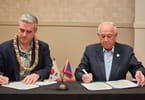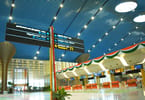Fozia Amanulla has grown accustomed to the pressures of negotiating multi-million-ringgit deals during her career in Islamic finance. Some things, though, she has never got used to. For instance, how certain men have declined to shake her hand, ignored her when she spoke or refused to look at her across a conference table.
At a meeting with a client in Saudi Arabia, where men and women are commonly segregated in public life, she was the only woman in the building — a fact reinforced by the absence of any toilets for women.
Fozia, one of the first women to lead an Islamic bank in Malaysia, has had no shortage of reminders that her industry — in which investments are made according to Islamic principles — is a male-dominated one.
But while some women in more conservative corners of the Islamic world are still fighting for the right to work outside the home in the booming Islamic finance sector, the number of female faces is multiplying.
And industry observers said it was in multicultural Malaysia where women had made the greatest inroads.
The roll call of female high achievers in Malaysia cuts across almost all aspects of the sector — from bank chief executives and scholars of Syariah or Islamic law to regulators like Tan Sri Zeti Akhtar Aziz, the governor of Bank Negara Malaysia, who is widely credited with playing a leading role in transforming Kuala Lumpur into a hub for Islamic banking.
“When the G-7 finance ministers wanted to know about Islamic finance, they invited Dr Zeti to brief them,” said Mushtak Parker, the editor of Islamic Banker, a London-based industry magazine, referring to the Group of 7 industrialised nations. In fact, many of the women now involved in Malaysia’s industry had already risen through the ranks of conventional finance when they felt the pull of the Islamic sector — a rapidly growing global industry that Moody’s has estimated is worth about US$1 trillion (RM3 trillion) in value this year.
“I could see the rise of Islamic banking, and I wanted to dive into that,” said Raja Teh Maimunah Raja Abdul Aziz, who was an investment banker before joining Islamic banks in Malaysia and the Middle East. That decision eventually led to her appointment last year as global head of Islamic markets at Bursa Malaysia, the country’s stock exchange.
Women are rising in the industry’s ranks in other countries as well, including Britain, which has also signalled its intention to become an Islamic finance hub. But Parker is among those who say that when it comes to Muslim-majority nations, Malaysian women win hands down, with Jamelah Jamaluddin leading the pack.
Jamelah was appointed managing director of RHB Islamic Bank in Malaysia in 2007 and is believed to have been the first woman in the world to head an Islamic bank.
In addition, Parker said, her appointment to the top job at the Malaysian arm of Kuwait Finance House earlier this year was the first time a Gulf-owned Islamic bank had appointed a female head.
Fozia, for her part, was appointed head of Eoncap Islamic Bank in 2007 after leading the Islamic debt capital market division at AseamBankers, now known as MayBank Investment Bank, for three years.
She said men’s traditional dominance of the industry had meant that women faced greater challenges. And Malaysian women’s success, she said, stemmed largely from the fact that there was no public segregation of men and women in this country.
Even so, Engku Rabiah Adawiah, the first female Syariah adviser to be registered with the Securities Commission of Malaysia and the only female Syariah scholar on the central bank’s National Syariah Advisory Council, said that when she first started attending industry conferences, she was the only woman among the speakers.
Now, she said, many more women would be seen at such events, and she expected the female presence in the industry to continue growing.
“I think Malaysian women have always been active in trade and commerce, so it’s not something that is culturally odd for women to be at the forefront,” she said.
Raja Teh Maimunah credits the availability and affordability of household help with allowing Malaysian women to progress — not only in Islamic finance but also in the wider work force. Live-in maids are common among middle-class and wealthy families in Malaysia.
These women believe there are few institutional barriers preventing them from progressing in Malaysia’s Islamic finance sector, but when they travel to the Middle East, they often receive stark reminders that not all women enjoy the same standing.
They said Saudi Arabia, where a woman is expected to be accompanied by a male relative when in public, presented the greatest challenges.
Fozia has taken her husband with her to Saudi Arabia to avoid potential problems, but Raja Teh Maimunah, who usually wears a headscarf only when meeting Syariah scholars, has tended to push the boundaries.
She travelled to the region in her previous role as chief corporate officer and head of international business at the Malaysian arm of Kuwait Finance House. She described how guards had once stopped her from attending a meeting with her colleagues in a building in Saudi Arabia that admitted men only.
“They said, ‘You can wait at the guard house’,” she recalled.
Asked how she coped with such setbacks, Raja Teh Maimunah said: “You have to take everything with a sense of humour and not get upset and appreciate that people do things differently in different places.”
While Raja Teh Maimunah has found ways to overcome such challenges, Parker said there had been a disappointing lack of progress in the Middle East.
Despite some notable exceptions, like Nahed Taher, chief executive of Gulf One Investment Bank in Bahrain, Parker said women’s ability to progress in both Islamic and conventional finance was still restricted in many Middle Eastern countries.
“A lot of the women there envy their Malaysian cousins,” he said.
Still, while women’s progress in bank boardrooms varies greatly, banks across various regions are increasingly trying to reach out to female Muslim customers.
Linda Eagle, president of the Edcomm Group Banker’s Academy, a consulting firm based in New York, said that while branches for women only had existed in Saudi Arabia for decades, such branches had opened in Dubai and Iraq in recent years.
Banks are also devising products specifically aimed at women. In Malaysia, for example, Eoncap Islamic Bank introduced a savings product last year called An-Nisa, that is available only to women and provides medical benefits.
“Women’s banking remains a large, untapped market with enormous growth potential,” Eagle said
WHAT TO TAKE AWAY FROM THIS ARTICLE:
- Jamelah was appointed managing director of RHB Islamic Bank in Malaysia in 2007 and is believed to have been the first woman in the world to head an Islamic bank.
- But while some women in more conservative corners of the Islamic world are still fighting for the right to work outside the home in the booming Islamic finance sector, the number of female faces is multiplying.
- Even so, Engku Rabiah Adawiah, the first female Syariah adviser to be registered with the Securities Commission of Malaysia and the only female Syariah scholar on the central bank’s National Syariah Advisory Council, said that when she first started attending industry conferences, she was the only woman among the speakers.






















